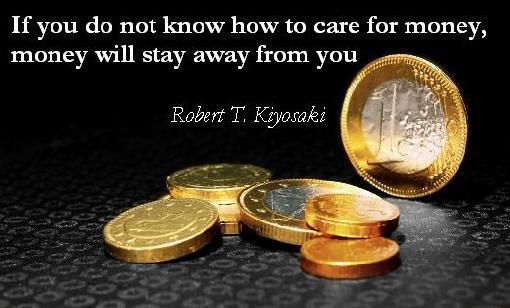It's good to be Oprah.
In 2015, Forbes estimates her net worth at $3 billion, making the actress, director/producer, entrepreneur, TV personality, and philanthropist rank as one of America's most successful women.
From movies to books to TV shows, it seems that everything Oprah touches turns into gold. There's a lot that we can learn from Oprah, so here are her three best pieces of financial wisdom.
1. Change Behaviors Holding You Back
"The greatest discovery of all time is that a person can change his future by merely changing his attitude," advises Oprah.
Successful individuals often arrive at a point in their careers or financial plans where they hit a self-imposed ceiling. The culprit is our tendency to attribute all of our current behaviors, both the good and the bad, to our past successes. We fail to see that what got us here may not necessarily get us there.
For example, back in your 20s, you may have decided that socking away $200 a month from your paycheck was enough to build a healthy nest egg. Fifteen years later, you're now married and have two beautiful kids, and you're still only contributing the same $200 per month to your retirement account. Assuming that your retirement account was to have an 8% return compounded annually, you would have $67,955.99 at the end of 15 years.
Sounds pretty good, doesn't it? After all, if you're planning to retire at age 65 and keep things up, you would have close to $1 million by your target retirement age.
However, $1 million may not be enough. Not only is your financial situation different very different from your twenties, but also more than 75% of registered investment advisors suggest a retirement savings goal of $2 million for Millennials. Set up a meeting with your financial planner once a year to determine if you need to apply any changes.
2. Spend Money Wisely
In her book What I Know for Sure, Oprah advises, "I hope the way you spend your money is in line with the truth of who you are and what you care about."
This deceivingly simple nugget of advice encompasses two key aspects of financial planning.
Spend in Line With Who You Are
Keeping your wants versus your needs in check is a critical skill for more effective budgeting, saving, and retirement planning.
- You need a wallet to carry your money and cards, but you want a Burberry wallet.
- You need a case to protect your smartphone, but you want one made with Swarovski Elements.
- You need a car to get to work, but you want a Ferrari.
Oprah is right in recommending spending your money according to who you really are. If you're constantly complaining that you don't have any money left to save or pay more than just your minimum credit card monthly bill, then you're very likely to be living above your means. Look for ways to cut back on your expenses by finding cheaper, yet equally effective, alternatives. For example, you could stop paying $5 per shaving blade by switching to Harry's or Dollar Shave Club and instead pay just between $1 to $1.88 per blade.
Of course, sometimes you have valid reasons to splurge, particularly if it allows you to generate income. For example, famous piano player Liberace won a case against the IRS and was able to deduct his lavish costumes as part of his business expenses.
Protect What You Care About
And what we care about the most is our loved ones. Be it your spouse, children, parents, or somebody that had a major influence in your life, your loved ones need to be protected against any type of financial hardship.
When you're the main breadwinner in your household and your spouse or children count on you for covering important expenses (such as mortgage payments and weekly grocery trips), then you need a backup plan in case you were to pass away. Nobody likes to think about their own mortality, but having a life insurance policy and building an emergency savings fund are essential pillars of any successful financial plan.
3. Tackle Goals With Patience
Despite her multiple successful ventures, critics have been quick to jump on the stumbles of Oprah's OWN network. However, not achieving immediate success didn't discourage her from her latest project.
During that period of turmoil, the President of Harvard University asked her to do the class of 2013's commencement address. Addressing the mishaps of her OWN network, she said:
It doesn't matter how far you might rise. At some point you are bound to stumble because if you're constantly doing what we do, raising the bar. If you're constantly pushing yourself higher, higher the law of averages not to mention the Myth of Icarus predicts that you will at some point fall.
This piece of wisdom is applicable to several financial scenarios.
- The price of stocks is bound to go up and down over time, causing you to sometimes lose sleep. Still, in the long run, investing in stocks is necessary to maximize your retirement account. However, it's necessary to hold stocks for a long time and not sell them at the first drop in price.
- There may be times that you won't be able to make contributions to your retirement account. It's important to save up for retirement, but when life throws a curveball at you, you may need every cent from your paycheck to cover medical bills and pay unexpected expenses. Don't add more wood to your fire, focus your full attention on the issue at hand, and then catch up with your retirement contributions on future paychecks. In 2015, most individuals can contribute up to $18,000 to their retirement accounts as long as it's before the end of the year.
- Working overtime too often has negative effects on your health. Everybody loves the extra cash that comes from an extra shift or work during a holiday. That cash may come at a price. A study found that people who work 11 or more hours a day are over twice as likely to suffer from depression than those who work seven to eight hours a day.
Nobody is perfect, so don't be too hard on yourself. As Oprah suggests, "You CAN have it all. You just can't have it all at once." Be patient and continue to work towards your financial goals.
What are other great pieces of financial wisdom from Oprah Winfrey?
Source: http://www.wisebread.com/the-3-best-pieces-of-financial-wisdom-from-oprah-winfrey?utm_source=zergnet.com&utm_medium=referral&utm_campaign=zergnet_601810













